I've Been Known to Talk to Trees (Part 3 of 4)
Part 3: Reflecting on my relationship with nature and ways it might deepen in my next chapter
I’ve been known to talk to trees, gazing up as I rest a hand on their trunks. I’ve hugged them too. I say “hello” to the moon, especially when her fullness silvers the grass, and greet the river when I slip my kayak into its current. Thus, it seems natural to consider doing more to protect, conserve, or restore the environment in my next chapter.
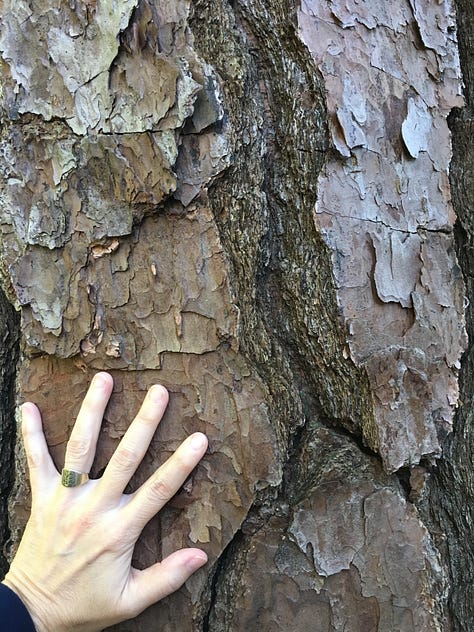
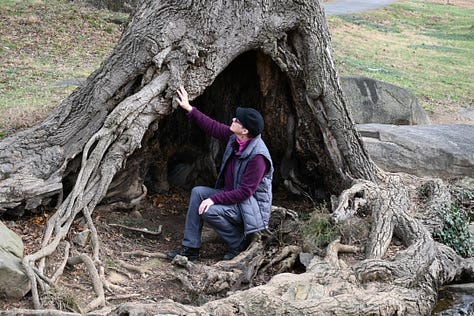
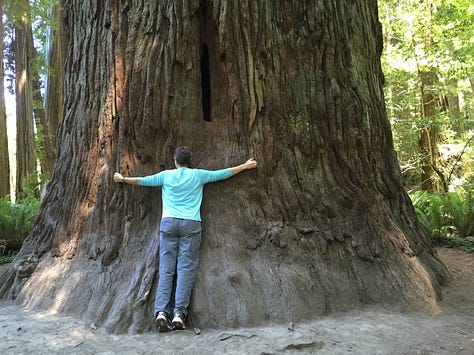
A few posts ago, I introduced the metaphor of an evolving canvas. On that swirling expanse, the abundant hue that reflects this part of me is river blue—not the monochrome that marks rivers on maps or navigation screens, but that brown-blue-green seen through the water in rivers, lakes, and streams.
Growing up, I lived near the Appalachian Mountains in northern New Jersey until I was nine, then moved southwest of Salem, Virginia, and spent four years in the foothills of another stretch of those same mountains before moving to Richmond.
I learned early to appreciate nature for both sustenance and fun.
Rows of raspberry bushes as tall as six-year-old me flourished beside our house in New Jersey. I helped Mom pick them, my fingertips and lips stained red when we finished, thin scratches crisscrossing my forearms. In the vegetable garden, I helped her plant, weed, and harvest (though I suspect those tasks took longer with me there). To add to that bounty, we bought apples and sweet corn from nearby orchards and farms.
Mom, Aunt Eileen, and Gram canned throughout the summer and fall, the steamy fragrance of simmering fruit or vinegar filling the kitchen. My favorites were peaches, pickled beets, and green beans. But what I picture are pears. Mom halved them lengthwise, cored and peeled them, then canned them vertically with their pale middles against the glass, a maraschino cherry nestled in each hollow. She liked how pretty they looked on a salad plate.
In a process far less pretty, nature also supplemented our meat supply. My Dad, grandfather, uncles, and cousins hunted, as did my brother once he was old enough. By then, we’d moved away from New Jersey, so without relatives to call on, all of us had to pitch in during deer season. Dad and James tied the carcass from the swing-set to drain, then dressed the deer. Later, Mom taught James and me how to clean the meat of buckshot and stray bits of fur. I grumbled but did my part. Shooting soup cans or lettuce heads was fun, but I had no interest in hunting. Blood made me queasy (still does).
Firewood, on the other hand, was a gift from nature far more pleasing—from the chainsaw’s growl in Dad’s grip, to the scent of sawdust, to the satisfying umph of hefting logs onto a tractor cart, pickup bed, or wood pile. Cutting and gathering wood was a chore that somehow made me feel bigger and stronger than I was. The payoff: fire. Which often meant, atop our wood stove, a bubbling pot of soup or chili. Even the remembering warms me.
Nature was my playground too. With cousins, friends, or James, I explored, leaped into leaf piles, splashed in creeks, blew on dandelion clocks, and ducked and raced in snowball fights.
On special summer days, Mom drove us to a lake where my brother and I took turns placing a foot in the springboard of her cupped palms so she could chuck us into the air. On the ride home, we sat on damp towels to protect our legs from the vinyl’s scorching heat.
When it snowed, oh, what unbridled joy. We’d build snow people (something that still delights me) and snow ramps or climb plowed piles of snow. In Salem, we’d sled down our hill as smoke rose from the shed’s chimney, a kettle for hot chocolate warming over the stone fireplace inside.
In every season, I loved wandering in the woods, including by myself.
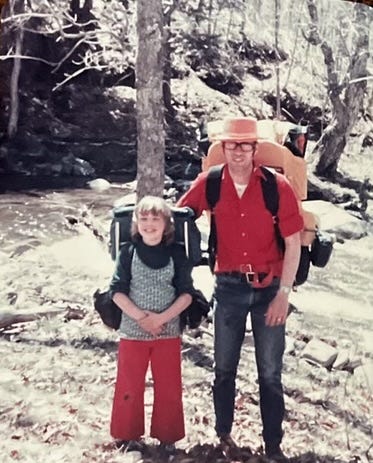
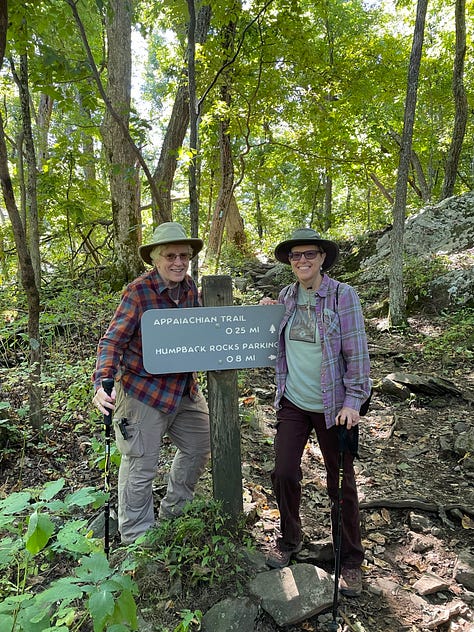
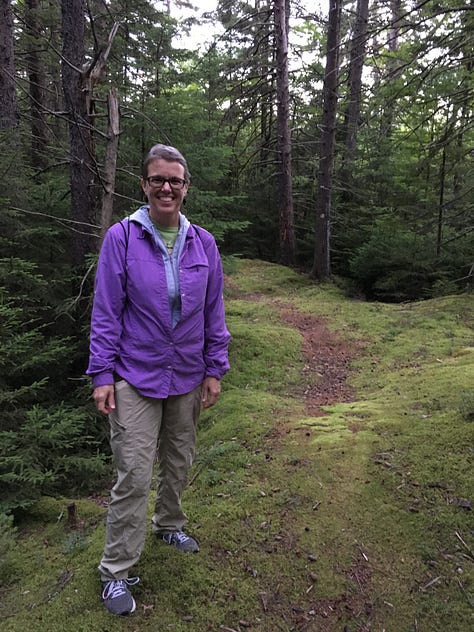
These days it’s solace and joy I draw most from nature. It’s where I turn when I’m grieving, angry, or hurt, where I feel held the way a riverbed holds the river. It’s where I go to ponder troubles or hopes, or to reset away from screens. It’s my retreat. I sit and write there, walk, watch birds and wildlife, hike, and kayak. I rest and breathe.
There’s more reciprocity in our relationship now. Whether it’s leaving no trace when I hike, picking up trash when I’m paddling, installing a rain barrel, working beside my wife Annette in her quest to create butterfly and bird habitats, participating in a local farm share, or buying less stuff, I strive to live a core intention I say each morning: care for the earth.
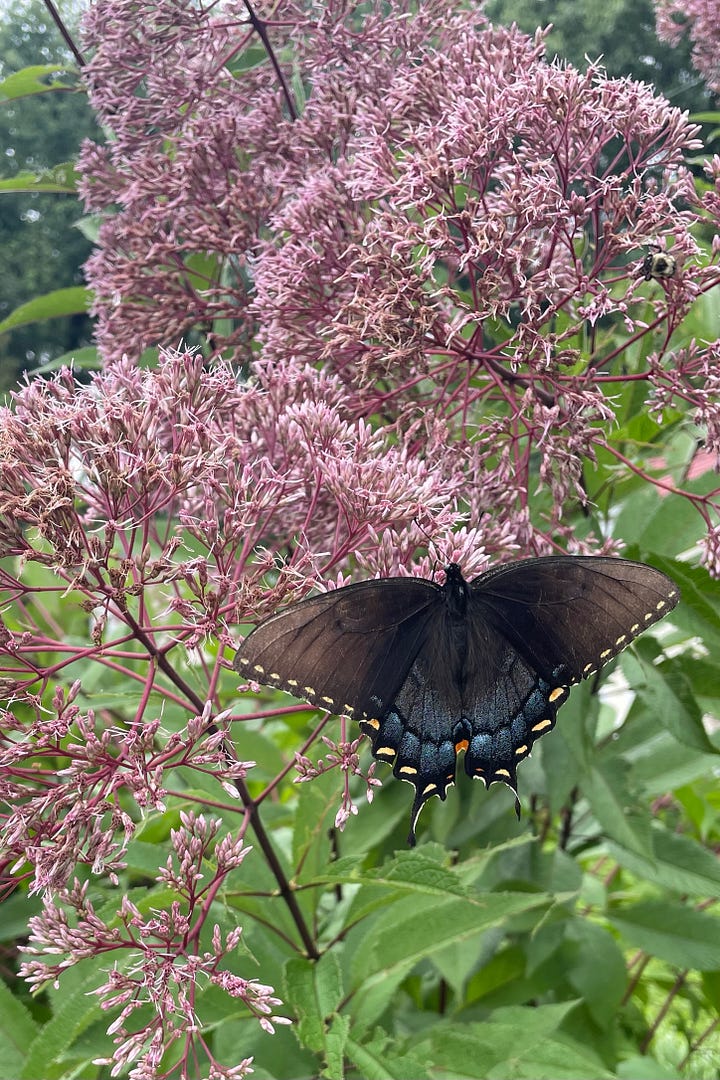
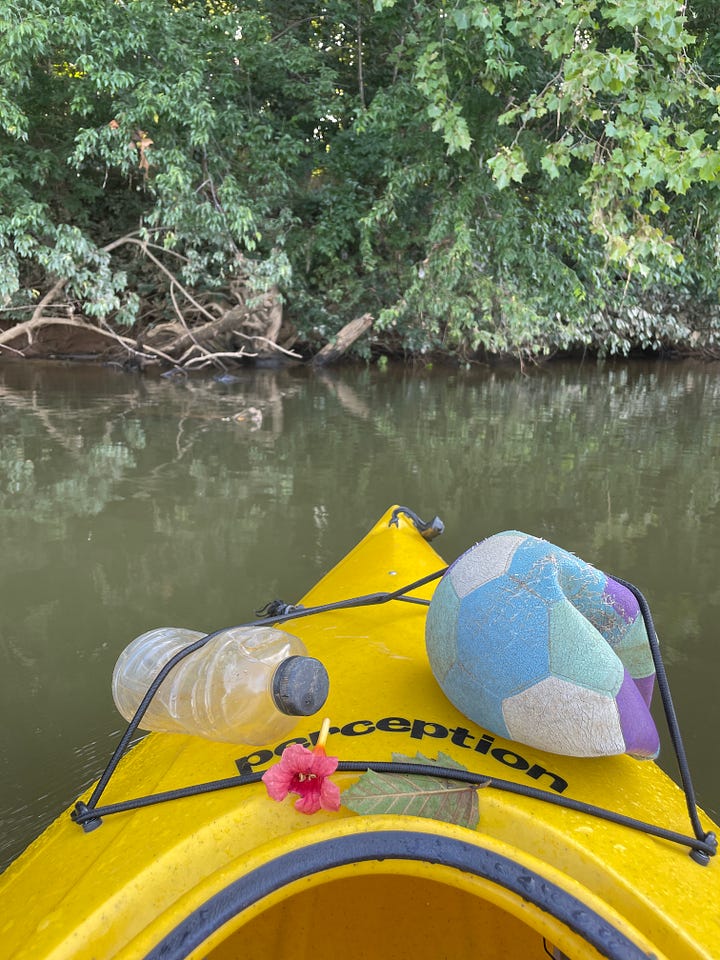
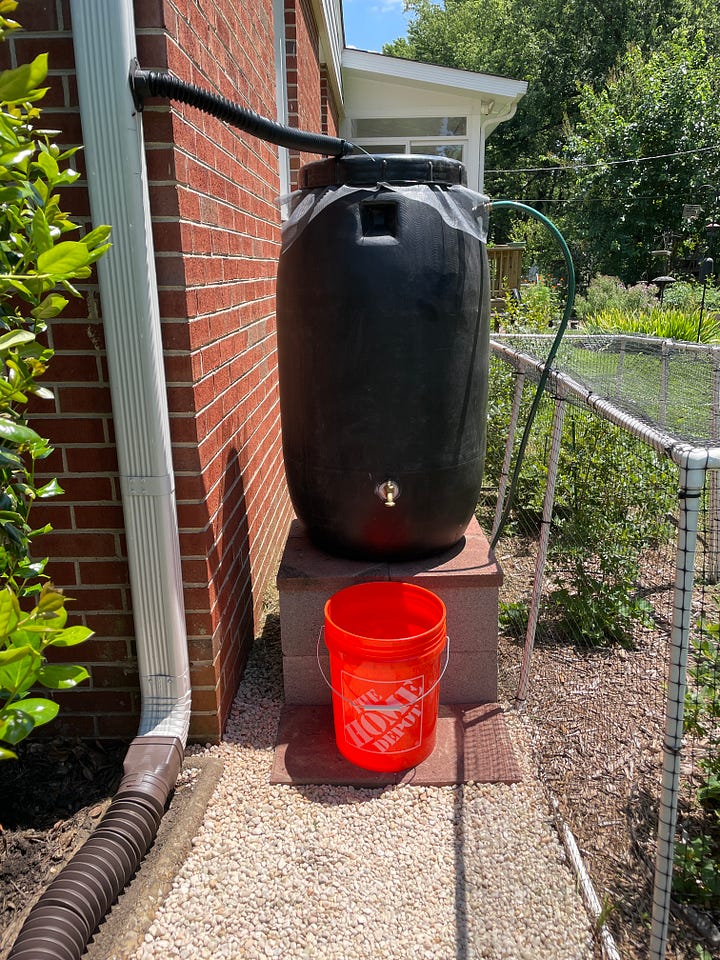
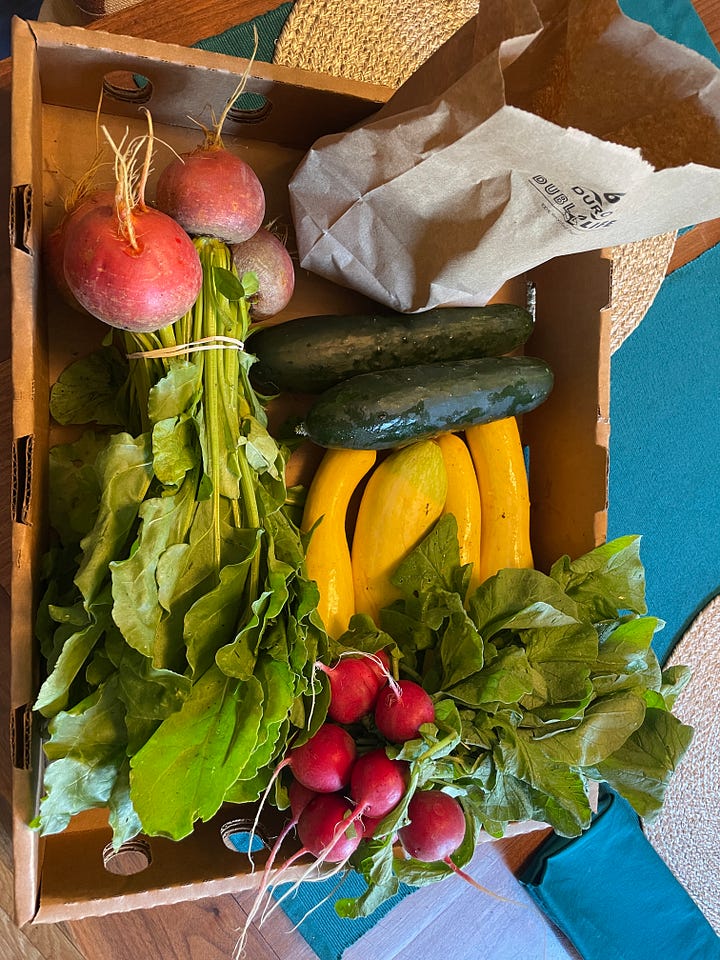
A few years ago, a friend left a long career fostering inclusivity on college campuses to pursue her passion for nature and conservation. She’s now an instructional designer for a natural resource center and loves it. If I follow her lead, how might my teaching, writing, researching, curating, or tech skills benefit an environmental non-profit like Virginia Interfaith Power and Light? What other skills, like GIS mapping, could I develop to offer more?
Or is farming where I’d like to focus? Not actual farming (picture Annette—or anyone who’s heard me whine about weeding—snicker at that suggestion) but supporting those who want to start or keep one, especially women and farmers of color. Witnessing the impact of farmers like Marissa at Whippoorwill Farms (a regenerative farm), Dan and Janet at Broadfork Farms (providers of our local farm share), and urban farmer and educator Duron Chavis makes furthering the work of organizations like Annie’s Project or the Rural Advancement Foundation International (RAFI) attractive.
Then there’s land philanthropy. Would it make more sense to earn all the money I can, buy land, and donate those acres to an organization in the southeast like the Black Family Land Trust or Capital Region Land Conservancy? As a librarian, it’s unlikely this would be a high-impact path. I sometimes wonder what it would be like to make big bucks so I could follow in the equally big philanthropic footsteps of stars like NBA player Bismack Biyombo who recently donated one season’s salary to build a hospital. Imagine being able to give millions away.
When I muse about my own what ifs or listen to students discuss their dreams, I wonder if earning a higher income and giving more money away has more impact than teaching. I look forward to going to school (yes, still, after all these years) and like to think my impact expands indirectly, through my students. It’s hard to imagine that whatever I might have done to earn more would have made me feel as good for as long. But is that true? And if it is, and the more monied path would have had a bigger impact, does choosing teaching make me selfish?
Thoughts like this motivate me to be as intentional as I can about what’s next. Will river blue be the main color in the next layer on my life’s canvas, or will it be a hue from another post in this series? I’m writing through the possibilities to help myself decide. And I’m writing about them here so I can learn from your wisdom and insights along the way.




Wendy, I’m glad you find a special peace in nature, carving, kayaking, walking and hiking etc! The fact that it also helps to sort through things that you’re dealing with and work on solutions! Nature is Great!
I really love your descriptive writing, the colors we can see and the sounds we can hear make it all the more beautiful!